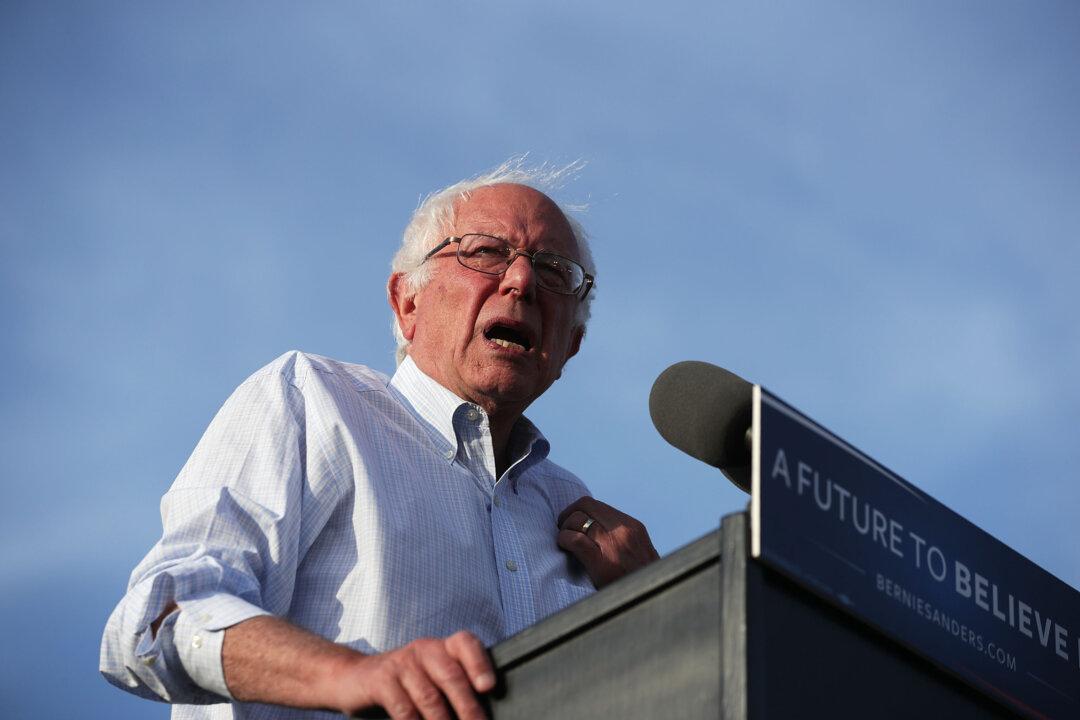A new study revealed that the so-called “Medicare for All” plan promoted by Sen. Bernie Sanders (I-Vt.) and endorsed by a host of Democratic Party candidates seeking election would increase government health care spending by $32.6 trillion over 10 years.
The study was commissioned by the Mercatus Center at George Mason University, a public research university in Virginia, and was released July 30.





